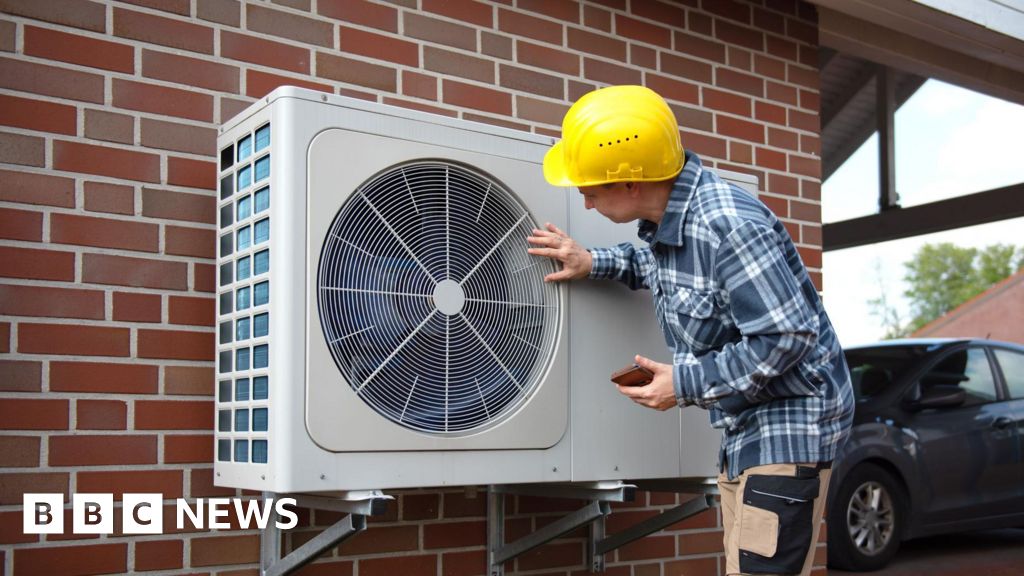In the annals of national suicide, the present dismantling of the American state will surely rank high. It may not reach the apogee attained by Russia in its final Tsarist days or by Louis XVI in the run-up to the French Revolution, but Great Britain’s Brexit hardly smolders compared to the anti-democratic dumpster fire of the Trump regime. Countless governmental, scientific, educational, medical, and cultural institutions have been targeted for demolition. The problem for the rest of the world is that the behavior of Trumpian America is more than suicidal — it’s murderous.
The deaths are mounting. By one accounting, the disruption of overseas food and drug shipments from the United States Agency for International Development (USAID), including life-saving HIV, tuberculosis, and malaria treatments, has already caused nearly 350,000 deaths (and they continue at an estimated rate of 103 per hour). Here at home, cuts to Medicaid, as contemplated in the absurdly named “One Big Beautiful Bill Act,” would lead to more than 21,600 avoidable deaths annually. And those numbers pale next to the levels of mortality expected to arise from the effects of climate change — a worsening catastrophe that the Trump regime is dead-set against doing anything about. Indeed, with an array of policies under the rubric “Drill, baby, drill,” Trump and his officials seem intent on worsening matters as quickly as possible.
If the World Economic Forum is to be believed, deaths from flood, famine, disease, and other non-military consequences of a hotter, more violent global climate might reach 580,000 per year, or 14.5 million by 2050. And that may be a lowball estimate, according to the American Security Project. Its models assert that warming-induced fatalities are already running at 400,000 annually and are heading for 700,000.
Any way you cut it, that’s a lot of misery. Given that the Trump regime is opening new areas for drilling, aggressively curtailing funding for climate-related programs, purging mention of climate change from government websites and publications, and disassembling the government’s capacity to track, let alone predict climate-change impacts, it makes sense to wonder WHY?
It’s Not Denial
Trump has indeed claimed that climate change is a hoax. He has also said that solar cells should be installed on car roofs. He says a lot of things. His words may be a guide to his state of mind — or his state of con — but they don’t necessarily reflect his or his coterie’s actual beliefs. On the question of climate change, it’s become increasingly clear that the elite of the Far Right tacitly accept the reality of climate change. More and more, outright denial is reserved for ramping up the fervor of the MAGA base, who appear willing to believe that a transvestite in the wrong bathroom is more dangerous than fires, floods, and hurricanes.
Project 2025, the much-discussed (and, by Trump, falsely disavowed) 885-page wish-list for his administration, reflects the new Republican tone. That blueprint for reversing progressive policies asserted that “the Biden Administration’s climate fanaticism will need a whole-of-government unwinding.” Notably, however, the document doesn’t deny the existence of climate change. Indeed, in a relatively sober moment that one might wish Elon Musk and his minions at DOGE had shared, the authors write, “USAID resources are best deployed to strengthen the resilience of countries that are most vulnerable to climatic shifts.” Other, non-lunatic parts of the Republican party sail by the same tack: they argue more about the particulars of climate solutions than the reality of the underlying problem. Various outspoken and influential Republicans like Vivek Ramaswamy and Elon Musk (all right, in Musk’s case, formerly influential) have taken a similar line.
Your House Is on Fire, So You Pour Gas on the Flames
Let’s get this right: members of the Republican elite know that there is a problem, but rather than take action to lessen it, they do what they can to make it worse by calling for more oil and gas development, ordering inefficient coal-fired generating stations to stay in operation, and obstructing the growth of renewables. Their excuse for this irrationality, when they even bother to offer one, loosely follows Interior Secretary Doug Burgum’s recent testimony before Congress that “the U.S. has ‘plenty of time’ to solve the climate crisis.” How to make sense of this? How do they make sense of this?
The reasons are varied and revealing. First, of course, there’s
• Money: It’s obvious. Contributions from oil and gas political action committees (PACs) to Republicans were more than five times greater than those to Democrats in the last election cycle. And that doesn’t include funds from individual donors connected to the fossil-fuel industry or various forms of “educational” soft money, let alone “dark money” channeled through issue-oriented nonprofits that don’t report their sources. There can be no question that total expenditures by fossil-fuel interests in the 2024 election far exceeded that sector’s $219 million in traceable investments.
• Business Opportunities: One man’s loss is another man’s gain. The thawing of the Arctic and other regions will open new transportation routes and allow access to resources of every kind. Part of the allure of Greenland for Donald Trump, for instance, is the island’s wealth in rare earth metals, which are critical to advanced battery technology and therefore to an array of high-tech and national security applications. If Gaza, demolished and bleeding, can be repurposed as the “Riviera of the Middle East” (to quote President Trump), then imagine what might be done with real estate freed from the bondage of ice.
• Culture Wars: The lines have been drawn for a long time. Solidarity is the key. If you give up too much ground on the climate issue, your challengers will paint you as a RINO — a Republican in name only — and you’ll be suspected of being soft on bathrooms, too. Pretty soon you’ll lose the MAGA faithful, who don’t want to be bothered by talk about issues. They want stand-up, semi-comedic entertainment in which you spray spite and vituperation like an incontinent cat. So, you tell them that worrying about climate change is for sissies and they eat it up. That’s good because it also helps keep you from doubting yourself. You’ve gone down this road much too far to turn back now. The anthropologist Anthony F.C. Wallace offered his “Principle of the Conservation of Cognitive Structure” as a fancy way of saying that, if you pull one brick out of a wall of belief, the whole structure might topple. It’s a reason some people insist on fighting when they ought to switch. They sense the terrifying possibility that, if they dare accept something from outside the echo chamber in which they’ve been living (read: Fox News), they might collapse in a simpering heap.
Wait! There’s More!
• The Short View: There’s a lesson to be learned in how quickly the “best of friends” bromance between Donald Trump and Elon Musk was cancelled. Apart from the fact that two hyper-narcissistic men in a small transactional space will never last long, it turns out that obsessive self-concern is a prerequisite for thoroughly ignoring the well-being and needs of others. Such a lack of empathy applies to the future as well as the present. If Trump, Musk, J.D. Vance, Stephen Miller, Marco Rubio, and crew ever happened to stumble across Robert Heilbroner’s essay “What Has Posterity Ever Done for Me?,” they would undoubtedly agree with the implication of the title, which is surely all they would bother to read. (Heilbroner actually argues the opposite: that care for posterity is a moral imperative.) Trump and his sycophants would say that, since posterity has done nothing for them, they owe it nothing. Bottom line: worrying about how future generations will cope with a savagely inhospitable climate is for losers.
• Ideology: This is the absolute deal-breaker. An ideology that prioritizes individual freedom over all else — rights untethered from responsibilities — inevitably leads to a hatred of regulation of any sort. If you accept taxation as a kind of regulation that limits your ability to keep all the money that you can get your hands on, you have the full picture. Action to address climate change in a meaningful way would require enforceable restrictions on emissions and/or a heavy carbon tax, both of which are anathema to the Right. Worse yet, as climate change is a global problem, international agreements like the Paris climate accord are also necessary and, for conservatives, that smacks of the worst kind of regulation, representing a step toward “extra-national” governance — decisions made by the U.N. or other foreign councils or sets of states, but mainly by people who are not like you.
Then There’s the Craziness of People Who Live on Crazy Street
• Psychopathy (or maybe just psycho): Being willfully unconcerned about an existential threat to civilization requires an exceptional personality, immune to the pangs of compassion and devoid of empathy for others. Such people exist. They have been identified among serial killers, remorseless business executives, and… well, you know, that guy in the White House. The horrific fires last January in greater Los Angeles, which destroyed more than 11,500 homes, presented the nation’s prospective Consoler-in-Chief with an opportunity to salve the region’s wounds with supportive and reassuring words. Instead, then-President-elect Trump, who has never been formally diagnosed with psychopathy but manifests many of its symptoms, opted to castigate California Governor Gavin Newsom for his water policies. (After his inauguration, Trump ordered a massive release of federally controlled water into southern California, a grandstanding move that produced no benefits for L.A.’s fire victims, would have conferred no advantage on firefighters had the flames still been leaping, and uselessly depleted water reserves.) Nevertheless, it might be useful to consider the situation from the point of view of Trump and his wealthy right-wing peers: if you have plenty of money, you can live anywhere you want. If one of your houses burns down, you no doubt have another you can move to — or you just build a new one. What’s the big deal?
• Disconnection: This goes deeper than ideology and provides the soil from which conservative ideology grows. Tucker Carlson and other rightwing media stars revealed more than they knew when they accused “environmentalist wackos” and other progressives of drawing a connection between climate change and systemic racism. With customary paranoia they attributed the link between the two issues to liberals’ desire to “control you.” They were dead wrong about the motivation, but the linkage is there.
Climate change invites an ecological view of life on Earth in which human behavior is understood to affect the condition of the planet. If such a problem can be global and the responsibility for it shared, then the people of the world are connected by a common challenge and predicament. Ultimately everyone, like it or not, is in the same mess, and only collective effort is likely to provide a remedy. Once the web of connection is admitted, belief in a special tribe, a superior race, a chosen people, or any other kind of exceptionalism becomes difficult to sustain, and the basis for racism starts looking as hollow as it is. Charles Darwin expressed this understanding a century and a half ago when he wrote, “As… small tribes are united into larger communities, the simplest reason would tell each individual that he ought to extend his social instincts and sympathies to all the members of the same nation, though personally unknown to him. This point being once reached, there is only an artificial barrier to prevent his sympathies extending to the men [and of course women!] of all nations and races.”
For people whose sense of self depends on believing that they are separate and superior to others, the ecological view espoused by Darwin and his many successors is anathema. Resistance to it, even at the cost of self-destruction — to say nothing of the cost to others — becomes an endless and vain cry of “Don’t tread on me!” Because this attitude originates deep in the identity of its adherents, prospects for overcoming it may seem dim indeed. Politics, however, are fluid. The tide can shift. The right-wing dead-enders can be outnumbered. They’d better be. The climate clock is ticking.








.jpeg)
 English (US) ·
English (US) ·